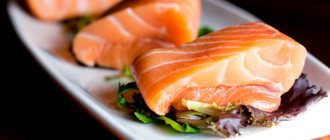The third principle of rational nutrition
What food breaks should there be during the day? How much and what you should eat during a particular meal. What should be the diet of an adult healthy person?
For many people, their diet is regulated by appetite. Eating with appetite is always a pleasure. It takes time for appetite to develop. Eating breaks are absolutely necessary. In childhood they should be shorter than in adulthood.
Read more about what appetite and hunger are and how to treat them.
The diet is based on four basic principles :
- Regularity of nutrition;
- Divided meals throughout the day;
- Rational range of products;
- Breaks between meals.
Regularity of nutrition
The first principle of a proper diet is regularity of nutrition , i.e. meals at the same time of day. Each meal is accompanied by a certain reaction of the body. Saliva, gastric juice, bile, pancreatic juice, etc. are secreted, and all this happens at the right time. In the process of digestion, conditioned reflex reactions play an important role, such as the secretion of saliva and gastric juice in response to the smell and sight of food, etc. In the chain of conditioned reflex reactions, the time factor plays an important role, i.e., a person’s developed habit of consuming food at a certain time of day. The development of a constant stereotype in the diet is of great importance for the conditioned reflex preparation of the body for receiving and digesting food.
Optimal intervals
The intervals between meals should be at least three and no more than 4-4.5 hours, since after about 3-4 hours the process of digesting food in the stomach ends and it leaves it. During the time between meals, the pancreas and liver, which synthesize secretions to facilitate digestion, must have time to prepare for the next intake. This requires at least approximately three hours.
When the intervals between meals are more than 4.5-5 hours, the secretion stagnates in the ducts, creating conditions for the development of inflammatory processes and increasing the risk of developing various diseases of the gastrointestinal tract.
In addition, with a long break, the feeling of hunger increases. This promotes overeating.
Constantly eating food can cause problems in its functioning. Maintaining the correct intervals will help maintain good appetite and functional activity of the digestive organs.
We use a brush. Why do we need dietary fiber and what are the benefits of it? More details
Divided meals during the day
The second principle of a proper diet is split meals throughout the day . One or two meals a day are impractical and dangerous to health. Studies have shown that with two meals a day, myocardial infarction and acute pancreatitis occur much more often than with three and four meals a day, and this is explained precisely by the abundance of food consumed at one time with two meals a day (and even more so with one meal).
practically healthy person is recommended three or four meals a day , namely: breakfast, lunch, dinner and a glass of kefir before bed. When conditions permit, you can introduce one or two additional meals into your diet: between breakfast and lunch and between lunch and dinner. Naturally, additional meals do not imply an increase in the total amount of food consumed per day or an increase in the total calorie content of the daily diet.
What are the benefits of fractional nutrition?
Fractional nutrition consists of regular meals every 4-5 hours. This contributes to the formation of conditioned reflexes for the production of digestive juices. At the same time, the intestines have time to cleanse the walls after the previous meal.
This time between snacks also reduces hunger and allows you to reduce portions. Thus, nutrition will not only prevent the development of pancreatitis and cholecystitis, but also lose weight.
Read on: How to speed up your metabolism naturally
Breaks between meals
The fourth principle of a proper diet is the optimal distribution of the amount of food among its meals during the day. Numerous observations confirm that the most useful regimen for a person is one in which he receives more than two-thirds breakfast and lunch , and less than one-third at dinner.
The time of day for breakfast, lunch and dinner, naturally, can vary within fairly wide limits depending on a person’s production activity. However, it is important that the time between breakfast and lunch is 5-6 hours and the time between lunch and dinner is also 5-6 hours. Based on the research conducted, it should be recommended that 3-4 hours pass between dinner and the start of sleep.
A proper diet is especially important for a normally developing child's body. It is recommended to feed newborn babies with a 3-3.5 hour break between meals.
Intervals between meals - what are optimal?
How many times a day should you eat? The most popular answers to this question are 3 or 5. However, some people feel great if they eat only 2 or even 1 time per day. What's better?
There is no clear answer. It all depends on the state of health, metabolic characteristics, lifestyle, and preferences of a particular person.
5 times a day
Fractional meals, including 3 main meals and 2 snacks, are recommended by almost all nutritionists and nutritionists who create weight loss programs. Why?
It is believed that frequent meals help speed up metabolism and control hunger. But is this really so?
Not really. Metabolic rate is influenced by many factors, including genetics. Moreover, many of them have not yet been fully clarified. For example, it is not clear why one person eats a lot and does not gain weight, while another is forced to constantly limit himself, because every extra crumb will immediately affect his weight.
Regulating your metabolic rate by changing the number of meals you eat is not the most effective solution. It is better to increase physical activity, take care of healthy sleep and the right food choices.
Studies show that in the long term, multiple meals are fraught with impaired carbohydrate metabolism. The reason is that insulin is produced in response to any food. Small meals increase the amount of hormone release and increase the risk of insulin resistance. Therefore, frequent meals are highly not recommended in case of poor heredity for diabetes, with existing insulin resistance, as well as with other endocrine disorders (hypothyroidism, polycystic disease).
In addition, split meals are not convenient for everyone. You need a lot of free time to plan the menu and prepare different dishes every day. Often people who adhere to this regime become obsessed with food. They are constantly thinking about what to cook, looking at the clock so as not to miss a snack. With a tendency to overeat and without counting calories, eating 5 times a day is much higher than the risk of eating more than you need.
However, for some people, eating five meals a day is truly necessary. It is recommended for inflammatory diseases of the gastrointestinal tract in the acute stage, for adrenal insufficiency, for pregnant women, as well as for athletes to build muscle mass. To avoid insulin spikes, it is important to choose the right foods for snacking. These should be low-carb foods high in healthy fats and protein. For example, nuts, avocado, cheese, full-fat cottage cheese, eggs, coconut chips.
3 times a day
This is a classic regimen that is familiar to us since childhood, which is the most physiological for a healthy person. It includes 3 full meals - breakfast, lunch, dinner.
With this diet, the intervals between meals are 5–6 hours, which allows the body to take a little break from constantly digesting food. In between meals, you can only drink water, herbal infusions, tea, coffee without sugar or with a sweetener that is not absorbed in the gastrointestinal tract. To stay full throughout the day, choose healthy foods with high nutritional value.
What is responsible for saturation?
When food enters the gastrointestinal tract, the digestive tract produces special hormones that signal that you need to stop eating. The greater the volume and caloric content of food, the greater the amount of hormones released. This is why we feel more full after eating a full meal rather than after snacking.
Three meals a day are optimal for insulin and leptin resistance. These conditions, where cells become less sensitive to insulin and the satiety hormone leptin, are considered the main causes of weight gain.
Less than 3 times a day
Typically, people following intermittent fasting, low-carb or ketogenic diets eat this diet. At the same time, they feel comfortable and do not suffer from hunger during the day. A long-lasting feeling of satiety and energy is provided by the right fats, which are included in every meal.
The benefits of two or three meals a day in the long term have been proven by many studies. For example, a 2019 review article on the impact of frequency and timing of meals on health showed [1] that this regimen, combined with consuming most calories in the first half of the day and periodic short fasts, provides:
- reduction of inflammation;
- increased autophagy or cell cleansing processes, when the cell receives new resources for restoration by eating its “old deposits”;
- normalization of circadian rhythms;
- increasing resistance to stress;
- improvement of intestinal microbiota.
Autophagy is one of the mechanisms that helps slow down aging and prevent the development of senile diseases and cancer processes.
How many times a day to eat to lose weight?
The basic rule for losing weight is a calorie deficit. This is exactly what the classic approach is, and this is what many nutritionists insist on. But the effect of losing weight in this way will not last long. It is very difficult to constantly count calories and refuse food with unknown calorie content. Therefore, after reaching the desired number on the scales, many people relax, and the extra pounds return again.
It is much more correct to approach the issue of losing weight more globally and consciously. You should start by changing your diet: giving up sugar, simple carbohydrates, and foods containing gluten. It is also important to get rid of hormonal problems and chronic inflammatory processes, which are often the causes of excess weight.
As for the number of meals, everything is individual.
For a healthy person, it is enough to eat 2-3 times a day. But some people feel great if they eat only once a day.
If you have problems with the gastrointestinal tract, endocrine disorders, problems with excess weight, in order to select an optimal and comfortable diet, you need to undergo an examination and consult with a doctor.
[1] Antonio Paoli, Grant Tinsley, Antonino Bianco, Tatiana Moro / The Influence of Meal Frequency and Timing on Health in Humans: The Role of Fasting. – Nutrients. – 2022. – Vol. 11, no. 4.
Changes in diet
Diet should not be viewed as a dogma. Changing living conditions can make adjustments to it. Moreover, some changes in diet need to be made from time to time specifically for the purpose of training the digestive system. In this case, as with other processes of enhancing adaptation capabilities, it is necessary to remember that changes in the diet should not be too sudden, i.e. they can represent physiologically permissible fluctuations without being gross violations of the diet.
However, violations are very often observed, and sometimes serious ones.
The benefits of “rhythmic” eating
Proper nutrition improves sleep.
It is difficult for a person to change his routine, especially if the changes concern nutrition. Stores are overflowing with junk food, which enslaves people with its additives, flavor enhancers and flavorings.
Gradually, we move from healthy nutrition to potentially dangerous ones. If you switch to a rhythmic, measured diet, you will notice how the craving for harmful, but tasty, gradually disappears. What other benefits are there from rhythmic eating?
- Compliance with the regime has a beneficial effect on the entire digestive system. Firstly, metabolism improves. With improper nutrition, the human body is in a constant state of stress, which leads to the deposition of subcutaneous fat. In turn, this leads to obesity and increases appetite. The stomach is unable to absorb fiber, fats and proteins, and only consumes simple carbohydrates, which are used to store fat. Having normalized the diet, the body begins to use up reserves, gradually returning to its usual mode. Because of this, your body will remain beautiful and fit. That is why nutritionists recommend following the regime, but combining it with regular physical activity. Secondly, the regimen reduces the risk of developing gastritis and peptic ulcers. According to statistics, more than 80% of people suffer from one of the pathologies, and in 40% of cases, exacerbation leads to the development of oncology.
- Decreased appetite. A person's taste buds improve. It is important not only to follow the regime, but also to eat high-quality and healthy food. Over time, you will begin to notice that the craving for unhealthy foods disappears, fruits and vegetables become tastier, and the desire to snack on the go disappears.
After just a few months of proper nutrition, the body’s functioning will be restored. The condition of the skin, nails and hair will improve. Bowel movements will occur regularly and “clockwise.” Weight will decrease and shortness of breath will disappear. Sleep is normalized, and only 7–8 hours will be enough for proper rest, instead of the usual 10–12.
Features of taking medications
Some drugs are prescribed by doctors for 10-14 days and are discontinued after the patient recovers. And for chronic pathologies that are difficult to treat, they have to be used from 3 months to several years. In such cases, this information will be useful:
- anticoagulants that reduce blood clotting are less easily absorbed in the presence of vitamin A and ascorbic acid;
- some drugs that reduce the level of harmful triglycerides, including cholesterol, provoke the formation of iron deficiency, so it must be taken additionally;
- cardiac glycosides readily enter into biochemical reactions with fiber, so it is better not to combine them with legumes and vegetable salads.
Antibiotics destroy not only pathogenic, but also beneficial bacteria from the intestinal microbiocenosis. You should not immediately try to restore their numbers by taking eubiotics (probiotics and prebiotics). It is advisable to do this after completing antibiotic therapy. Your pharmacy number 1 catalog will help you make the right choice.
Medication form
The instructions for any drug specify the form of use of the drug. It is important to comply with these requirements, because the effectiveness of the drug depends on it. Here are some recommendations:
Follow the directions. If the tablet must be placed under the tongue, do not swallow it. The substances of the medication located under the tongue will quickly enter the bloodstream and have their effect.
If the medicine is sold in capsules, then under no circumstances should it be opened. The shell that makes up the capsule is necessary for better absorption of all contained components and protection of the stomach.
There is no need to crush tablets that do not have a division line. If the medication does not provide for half-time use, then it is not worth doing.
Medicines that should be taken on an empty stomach
If there are no stomach problems, you should take preparations made from herbal raw materials on an empty stomach. These are water infusions and decoctions that are used in the treatment of any diseases. All bioactive substances from their chemical composition (flavonoids, organic acids, saponins) are instantly destroyed by hydrochloric acid. And when taken on an empty stomach, they have time to reach the “safe” small intestine.
The exception is alcohol tinctures. The beneficial substances from them are quickly absorbed into the blood, but ethanol is extremely irritating to the mucous membranes. Under its influence, hydrochloric acid will begin to be produced, which will only worsen the situation. Eating food immediately after taking the alcohol tincture will help minimize the negative consequences.
Doctors prescribe calcium supplements to many patients with fragile bones, weak ligamentous-tendon apparatus, children during the growth period, and women during natural menopause. It is important to take them on an empty stomach. Otherwise, calcium will form complexes with fatty acids and be evacuated from the body in an undigested form. But it is allowed to take the tablets with milk, kefir, fermented baked milk.
Half an hour before meals, take antacids to reduce acidity in the stomach. In 30 minutes they manage to completely dissolve. And then they enter into a chemical reaction with hydrochloric acid, neutralizing it.
The condition of the heart and blood vessels is better with intermittent fasting
Numerous studies support the link between intermittent fasting and lower levels of LDL (low-density lipoprotein, the so-called bad cholesterol), as well as weight loss. These are two important factors that play a role in cardiovascular health.
Cardiovascular disease occurs when inflammation and oxidative stress cause changes in cholesterol and the arterial wall. Atherosclerosis, a chronic inflammatory condition in which plaque builds up in the arteries, is the leading cause of vascular disease worldwide. Intermittent fasting has a positive effect on reducing inflammation, which makes a significant contribution to heart health.
What is the point of fasting for cancer?
Oncology, in essence, is uncontrolled cell growth. Autophagy, which occurs during intermittent fasting, helps sort and remove cellular waste.
Animal studies, for example, suggest that intermittent fasting may slow the progression of some cancers, as well as protect healthy cells during chemotherapy. Periods without food help build resilience in the immune system, which will help combat the immunosuppression that often follows chemotherapy.
A stable blood sugar level, which is achieved through periodic fasting, also protects against cancer. A 2016 study of more than 2,000 breast cancer patients found that those who fasted for 13 hours or more overnight had significantly lower levels of glycated hemoglobin (a measure of blood sugar) and a reduced risk of breast cancer recurrence and mortality, and the risk of all-cause mortality.
However, the relationship between autophagy and cancer is complex and may depend on tumor type, disease stage, and genetics. I do not recommend intermittent fasting without consulting your oncologist.
Who is contraindicated for intermittent fasting?
- Pregnant or breastfeeding women. Pregnancy is a period of growth and development, so any restriction in the supply of nutrients to the mother’s body may be undesirable.
- Children. Fasting is not suitable for a growing body.
- People who have a history of eating disorders (bulimia and anorexia).
- People who are underweight. Most people lose weight during PG, so if you're low, don't starve yourself. If you have a body mass index (BMI) less than 20, fasting is contraindicated.
- People suffering from heart problems or high blood pressure. PG may have a beneficial role in heart disease, but consultation with your healthcare provider is important. The fact is that during fasting there can be an imbalance of electrolytes, which can cause side effects. And proper prevention of such an imbalance will avoid unwanted effects.
- Those who have adrenal problems or blood sugar imbalances. PG can cause cortisol spikes, which can worsen adrenal and blood sugar problems. It's best to start with a 12-hour fast that includes overnight, and then slowly adapt your metabolism. If you have sudden fluctuations in glucose and you easily enter a state of hypoglycemia, fasting without medical supervision is contraindicated for you.
- A word of warning for people with thyroid problems: While PG may be helpful for people with thyroid conditions, sudden and prolonged periods of fasting can make the condition worse by causing spikes in insulin and cortisol. Therefore, it is also recommended to slowly increase the fasting period and reduce the eating window under the supervision of a specialist.











